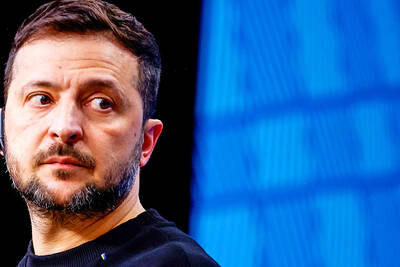Australia’s New South Wales (NSW) state has blocked UN officials from entering a detention facility as part of their visit under Canberra’s commitment to the Optional Protocol to the Convention against Torture and Other Cruel, Inhuman or Degrading Treatment or Punishment (OPCAT).
Separately, health authorities in Queensland state have said that they would prevent the officials from visiting mental health wards in which people ordered to undergo treatment or charged with crimes are held.
Inspectors arrived at the detention facility in Queanbeyan on Tuesday and were denied access, New South Wales Minister for Corrections Geoff Lee said.

Photo: EPA-EFE
“The officers did the right thing and refused them entry,” Lee said. “The whole role of our jail system is to keep people safe, protect us from the criminals that we lock up every day. It’s not to allow people just to wander through at their leisure.”
The inspectors “should be off to Iran looking for human rights violations there,” he added.
Inspectors from the UN human rights office arrived in Australia this week with plans to conduct surprise visits on state, territory and commonwealth prison facilities over 12 days.

Photo: EPA-EFE
The UN convention’s optional protocol was ratified by the Australian government under then-Australian prime minister Malcolm Turnbull in 2017.
This is the first time inspectors have visited Australia.
Under its mandate, the UN human rights office is able to send inspectors for unannounced visits to detention facilities and conduct private interviews with people deprived of their liberty without witnesses.
The New South Wales government’s opposition to the visits has been criticized by Australian Human Rights Commissioner Lorraine Finlay.
“If states are confident that they are meeting minimum standards, they should have no hesitation in cooperation with the UN delegation,” she said.“It means Australia will not be meeting the promises that we made when we signed OPCAT. When we make promises to the world, it is important that we keep our word.”
A Queensland government spokesperson said while the state supported the visit, it was bound by its Mental Health Act to limit inpatient unit access to “certain categories of visitors” for the safety of patients.
“We are supporting the … upcoming visit by facilitating interviews with patients and staff, and providing access to documents about our mental health facilities, in line with our legislative and privacy obligations,” the spokesperson said.
While the state “will support the visit as far as lawfully permissible, these requirements mean that Queensland Health is not able to lawfully permit physical access to inpatient units,” the spokesperson added.
Queensland has known for five years that the inspections would occur and changed some laws to provide for access, as other jurisdictions in Australia have done.
Queensland Corrective Services (QCS) said it was “committed to the humane containment, supervision and rehabilitation of prisoners and offenders,” and had issued authority for “unrestricted access of the ... delegation to all corrective services facilities managed by QCS.”
On Wednesday, New South Wales Premier Dominic Perrottet reiterated his position that the state’s prison system was “the strongest in the country.”
“Our prison system is there ultimately to do one thing and that is keep the people of NSW safe,” he said. “We’ve set up those oversights in our prison system and if people have issues ... you can raise them with the minister or the corrective services commissioner. If issues are raised in our prison system, they can go to the appropriate channels.”

BLOODSHED: North Koreans take extreme measures to avoid being taken prisoner and sometimes execute their own forces, Ukrainian President Volodymyr Zelenskiy said Ukrainian President Volodymyr Zelenskiy on Saturday said that Russian and North Korean forces sustained heavy losses in fighting in Russia’s southern Kursk region. Ukrainian and Western assessments say that about 11,000 North Korean troops are deployed in the Kursk region, where Ukrainian forces occupy swathes of territory after staging a mass cross-border incursion in August last year. In his nightly video address, Zelenskiy quoted a report from Ukrainian Commander-in-Chief Oleksandr Syrskyi as saying that the battles had taken place near the village of Makhnovka, not far from the Ukrainian border. “In battles yesterday and today near just one village, Makhnovka,

US Secretary of the Treasury Janet Yellen on Monday met virtually with Chinese Vice Premier He Lifeng (何立峰) and raised concerns about “malicious cyber activity” carried out by Chinese state-sponsored actors, the US Department of the Treasury said in a statement. The department last month reported that an unspecified number of its computers had been compromised by Chinese hackers in what it called a “major incident” following a breach at contractor BeyondTrust, which provides cybersecurity services. US Congressional aides said no date had been set yet for a requested briefing on the breach, the latest in a serious of cyberattacks

In the East Room of the White House on a particularly frigid Saturday afternoon, US President Joe Biden bestowed the Presidential Medal of Freedom to 19 of the most famous names in politics, sports, entertainment, civil rights, LGBTQ+ advocacy and science. Former US secretary of state Hillary Rodham Clinton aroused a standing ovation from the crowd as she received her medal. Clinton was accompanied to the event by her husband, former US president Bill Clinton, daughter, Chelsea Clinton, and grandchildren. Democratic philanthropist George Soros and actor-director Denzel Washington were also awarded the nation’s highest civilian honor in a White House

Some things might go without saying, but just in case... Belgium’s food agency issued a public health warning as the festive season wrapped up on Tuesday: Do not eat your Christmas tree. The unusual message came after the city of Ghent, an environmentalist stronghold in the country’s East Flanders region, raised eyebrows by posting tips for recycling the conifers on the dinner table. Pointing with enthusiasm to examples from Scandinavia, the town Web site suggested needles could be stripped, blanched and dried — for use in making flavored butter, for instance. Asked what they thought of the idea, the reply